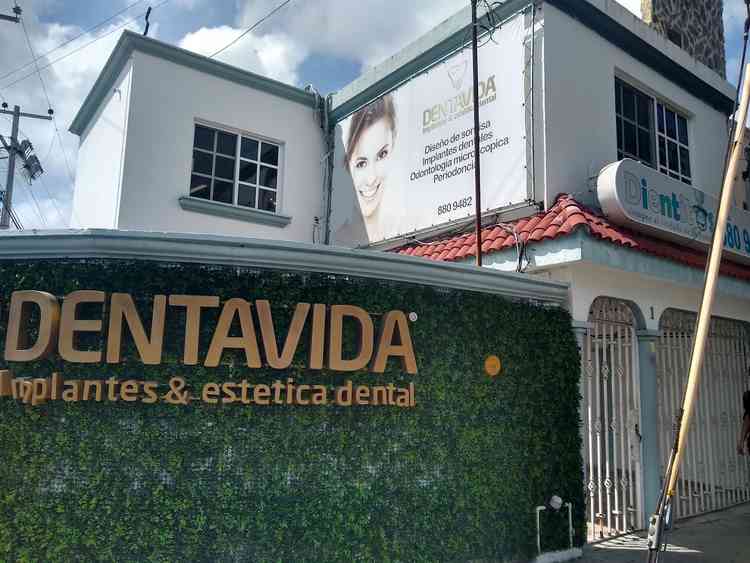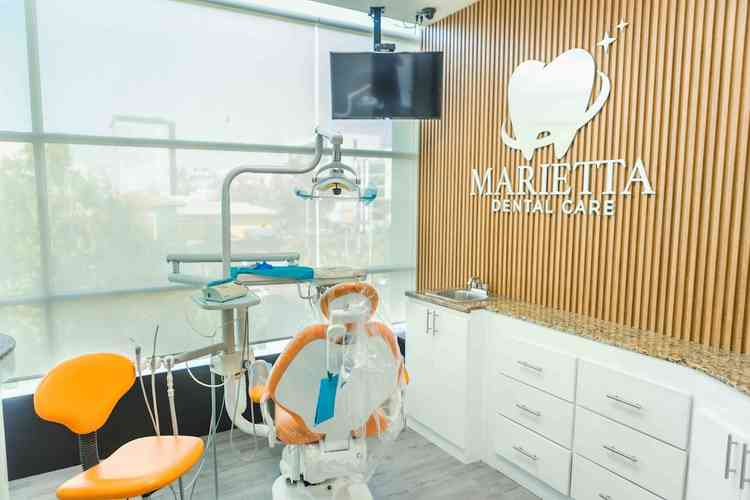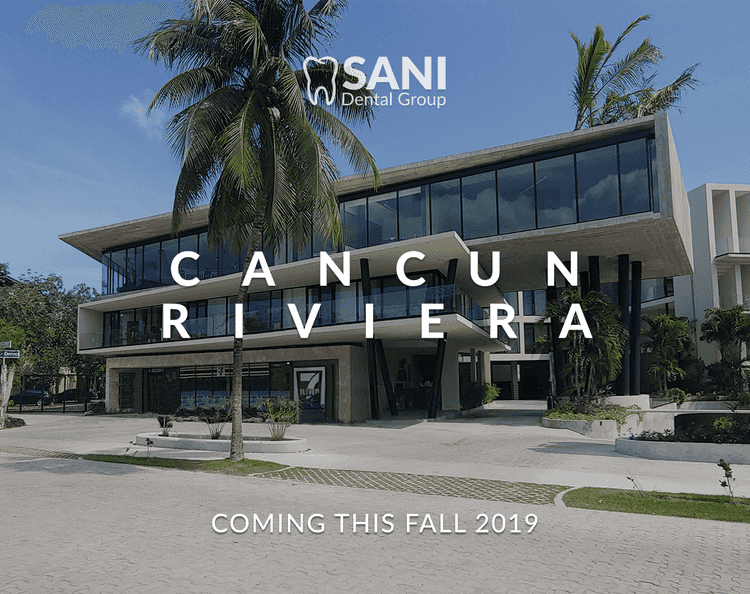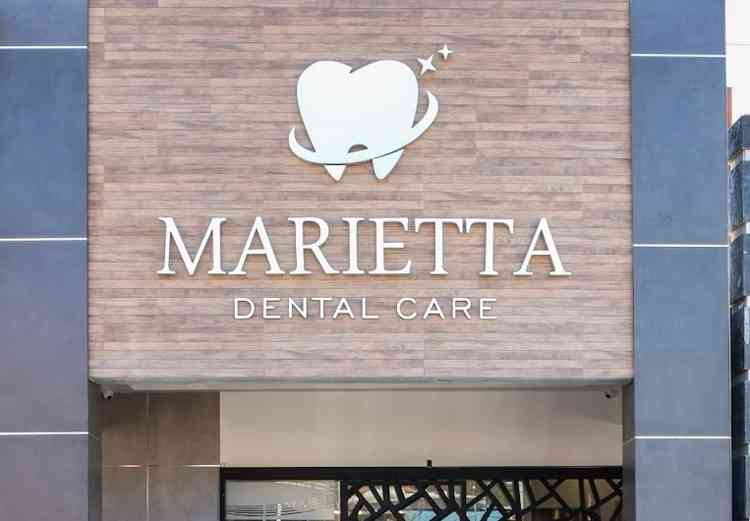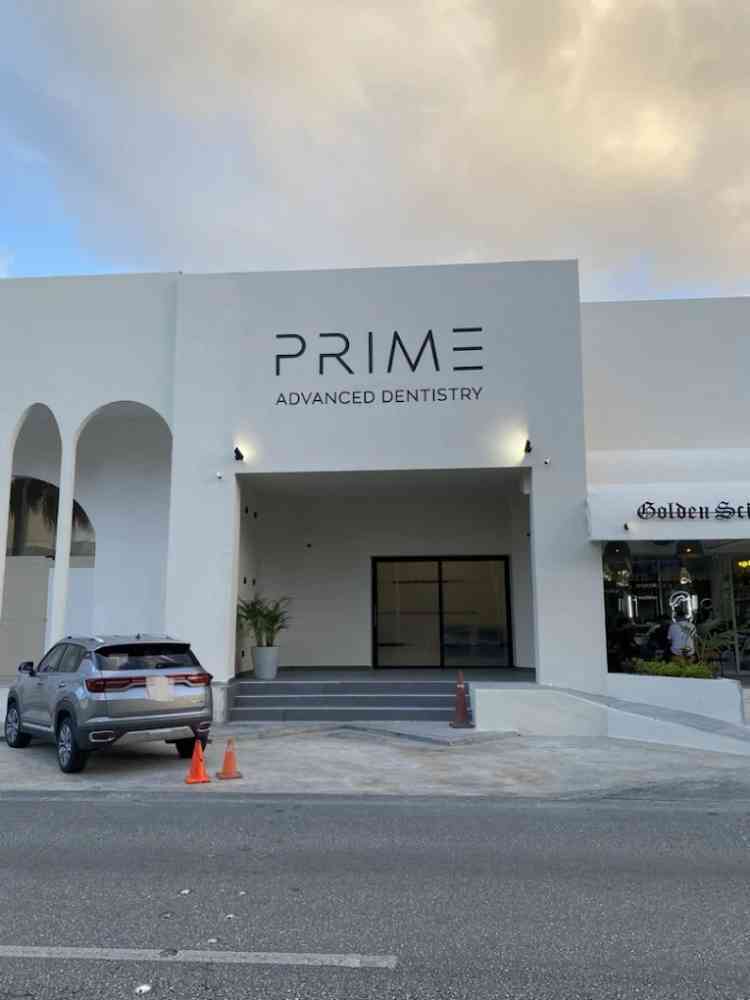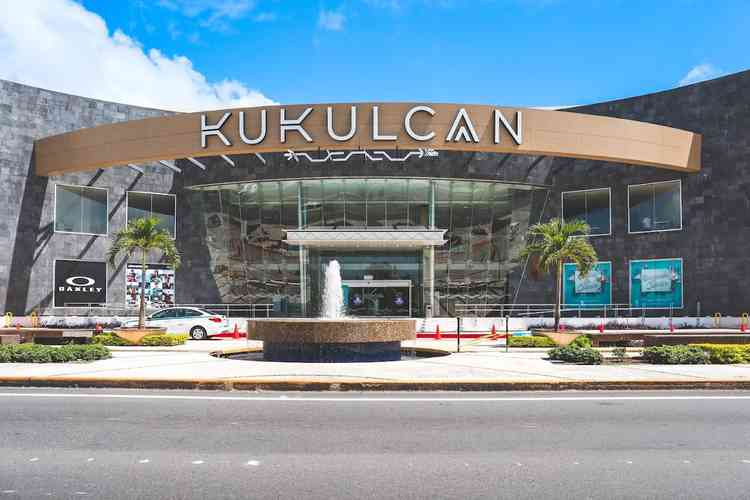Alternatives for Dental Implants: Finding the Right Fit for Your Smile

Prathyusha Itikarlapalli
- Content Writer

Gustavo Moreno Vargas
- Reviewed by

Key Takeaways
- Tooth loss can be challenging. Dental implants are a costly yet permanent solution for tooth loss, but they require adequate jawbone for treatment success.
- Alternatives to dental implants, such as removable complete or partial dentures, mini dental implants, Maryland bridges, Cantilever bridges, and traditional dental bridges, are minimally invasive and cost-effective.
- Choosing between implants and their alternatives depends not only on cost but also on factors like oral health, lifestyle, and long-term maintenance needs. A qualified and experienced dental professional will help choose the right one, specific to the case and expectations.
When Does One Need Dental Implants?
Dental implants are the metal screw like posts that dentists fix in your jawbone. These are designed to hold artificial teeth in place, serving the same function as lost natural teeth. Implants are ideal for candidates who have lost one or more teeth and are seeking restorative options. Tooth loss is a significant concern among the elderly. According to the CDC, around 1 in 5 adults aged 75 and above had lost most of their teeth. [1] Since teeth are essential for chewing, biting, and even clear speech, living without them can be challenging. Dental implants, after they are fixed within the jaw, form a strong bond with the surrounding jawbone. Dentists fix the implants surgically within the jaw, and you will heal for a few months. Over time, they behave like natural tooth roots, providing a strong anchor that feels natural and secure. However, not every patient can be an ideal candidate for dental implants. Certain conditions make you unsuitable for dental implants.
When Should One Look for Alternative Treatment for Dental Implants?
Dental implants are not an ideal choice in case you:
- Suffered significant bone loss and lacked adequate jawbone to support the implants.
- Are prone to habits like smoking and drinking slows down the healing.
- Experience serious gum disease and tooth infections.
- Suffer from health problems such as uncontrolled diabetes, bone problems, or autoimmune diseases.
- Are uninsured and cannot afford the expensive implant costs.
- Can’t commit to multiple visits or months of treatment and prefer quicker solutions.
Problems With Dental Implants
While not every candidate is suitable for dental implants, there are other problems associated with their treatment. Implant treatment relies on a multi-step surgical procedure followed by a long recovery period. One needs to be committed to proper aftercare for the implants to successfully complete osseointegration and form a hardy bond that lasts for a lifetime. Furthermore, the titanium metal implants may cause an allergic reaction, and some candidates look for alternative to titanium dental implants. While zirconia implants serve as a go-to option, these come with higher price tags. Additionally, implant procedures are expensive, especially when replacing multiple missing teeth. Still, living without teeth can greatly affect the quality of life. When dental implants are not an option, it’s natural to seek other alternatives to dental implants. It will make daily life easier and help you live to your fullest potential.
Holistic Alternatives to Dental Implants
Holistic alternatives to dental implants rely on less invasive treatments such as dental bridges or dentures. These prosthetic teeth rest on neighboring teeth, eliminating the need for extensive surgical procedures. We detailed various types below.
Removable Complete Dentures
Removable complete dentures are for you if you have lost all your teeth or had them removed from your jaw. These are the removable prosthetic devices that rest on your jaws and soft gums. They come as a complete set for one jaw, featuring a pink-colored acrylic base that holds artificial teeth. You can remove these dentures during sleep or while you need to clean them.
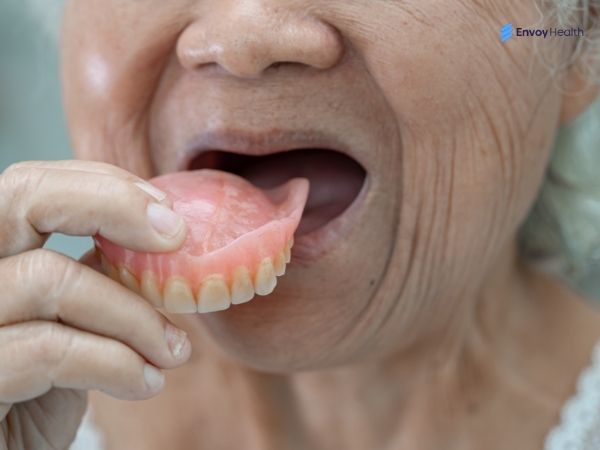
Pros:
- More affordable than dental implants.
- Improves the functions such as chewing and imparts clarity to speech.
- Enhances facial appearance by preventing sagging or sunken teeth.
- You don’t need a dentist's help to remove them; you can handle them at home.
Cons
- There is a chance that dentures may slip when you chew or talk.
- Unlike dental implants, these are simple, removable devices and do not contribute to jawbone health. Over time, the jawbone deteriorates, resulting in sunken cheeks and a sagging facial appearance. Dentures are a clear example of dental implant options for dental implants with bone loss as the most common result.
Partial Dentures
Partial dentures are suitable for you if you have a few natural teeth remaining and have lost some of them. Wearing partial dentures won't leave your smile with gaps, and you get a complete smile. These appear as the artificial teeth attached to a pink-colored base with a metal clasp or holder to keep them in place. The metal clasps are made from cobalt-chrome, titanium metal, or plastic.[2] These snap over the natural teeth, securing them without slippage. You can choose between removable partial dentures for affordability, cast partial dentures for strength and durability, or flexible partial dentures for comfort and aesthetics.
On the other hand, dental flippers are lightweight, temporary partial dentures. They are designed for individuals who have lost a few teeth and are seeking permanent dentures or implants. These maintain the adjacent teeth in place and prevent them from drifting into the empty space. Dental flippers have an acrylic base with artificial teeth and metal clasps to hold them in place.
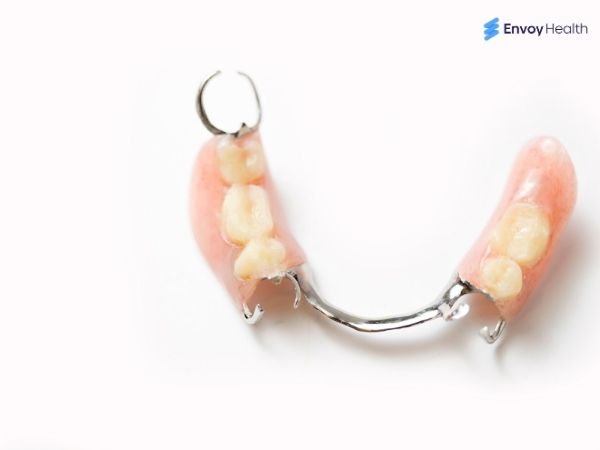
Pros
- Imparts completeness to your smile, which may be left with gaps due to fallen teeth.
- Restores the ability to chew properly and talk with clarity.
- Affordable compared to dental implants and other alternatives like dental bridges.
Cons
- Metal clasps can cause slight discomfort.
- Prices and usage vary by type, so you need to make a clear choice based on your specific case and requirements.
Classic Dental Bridges
These are the traditional dental bridges, which can replace one or two missing teeth. Dental bridges appear like a line of 2-3 dental crowns held together. The pontic teeth hold the actual crown (that fills the gaps). The pontic teeth are anchored on the healthy, strong teeth on either side of the missing teeth. Dentists prepare the tooth adjacent to the gaps by removing a portion of the enamel. Over these, the crowns are positioned so that the bridge is held in place. [3] Dental bridges vary in type depending on the material used. They can be all-ceramic, zirconia, all-metal, or porcelain fused to metal. The choice will be made based on the location of the tooth, your lifestyle, and budget expectations. While all-ceramic, zirconia, and porcelain-fused-to-metal bridges resemble natural teeth, all-metal bridges are sturdy and ideal dental implant alternatives for molars.
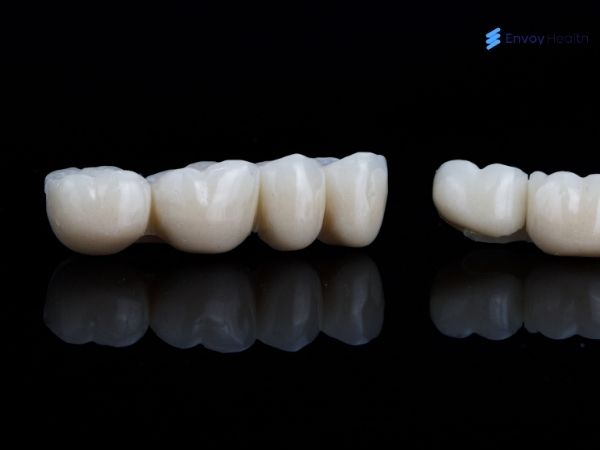
Pros
- Natural-looking solution that does not require surgical intervention.
- Prevents neighbouring teeth from drifting into the empty space, which can cause malalignment issues.
- Restores your ability to chew efficiently and speak with clarity.
Cons
- You need a healthy adjacent tooth to get dental bridge treatment.
- Maintaining excellent oral hygiene is crucial. Since decay in the supporting or adjacent teeth can compromise the bridge and require further treatment.
Maryland Bridges
Unlike classic dental bridges, Maryland dental bridges, also known as resin-bonded bridges, do not require enamel removal. It is, in fact, a less invasive procedure to fix a prosthesis in place of one or two missing teeth. The Maryland bridge is a preferred alternative to dental implants for front teeth and consists of one or two crowns with supporting wings. These wings, made from metal or resin-bonded porcelain, are bonded on the back of two adjacent teeth on either side of the gap. Ref While it cannot deliver a sturdy bite force, the aesthetics it offers make it ideal for front teeth.
Pros
- Does not involve enamel removal, preserving natural teeth and preventing issues like tooth sensitivity or loss of original strength.
- Less expensive and a cheaper alternative to dental bridges, which require expensive costs for tooth preparation and bridge fabrication.
Cons
- Not suitable for back teeth, since the setup with wings cannot offer a strong bite force.
- Bonding can fail sometimes, requiring retreatment or replacement.
- Attaching wings to the adjacent teeth may sometimes cause discoloration of the teeth, raising cosmetic concerns.
Cantilever Bridges
Cantilever dental bridges consist of an artificial tooth attached to a single supporting crown. This crown is placed on the adjacent natural tooth, and the artificial tooth hangs over the empty space without any support beneath it. They are ideal for patients who have lost one tooth and have a healthy tooth on only one side.[4]
Pros
- A non-invasive procedure that conserves the natural teeth.
- Offer better aesthetics and blends with natural teeth.
- Cost-effective choice compared to the options.
Cons
- Artificial teeth hang in empty space, posing extra pressure on the adjacent teeth bearing the pontic tooth.
- Cannot offer a strong bite force without any supporting structure beneath it.
- Artificial tooth is prone to fractures.
Non-Surgical Dental Implants
Non-surgical dental implants are also known as flapless or mini implants. The procedure eliminates the need for surgical incisions during implant placement and reduces the duration of long healing periods. Dentists use advanced imaging to get a clear picture of the patient's jawbone. They create a small punch site or opening on the jawbone and place the implants directly into it. Since this eliminates the need for cuts and stitches, you don’t have to undergo an extensive recovery period.
Pros
- Less pain, swelling, and inflammation.
- Quicker recovery and smoother healing.
- Affordable non-surgical dental implants cost.
Cons
- Chances of damage to vital nerves and associated structures.
- Reduced surgical vision is achieved because the technique utilizes 3D imaging, thereby eliminating the conventional flap-like opening of the jawbone.
Choosing the right option might feel overwhelming, but you don’t have to decide alone. Sign up with Envoy Health today and get personalized guidance from trusted dental specialists to find the solution that’s right for you.
Now you know the various available alternative options for dental implants. Suppose you wonder if “Is there a cheaper alternative to dental implants?”, head to the upcoming section. We discussed the cost details.
Why Go for Cheaper Alternatives for Dental Implants?
While dental implant costs seem sky-rocketing for the uninsured, some clinics offer flexible payment plans. In fact, the payment options for dental implants, such as monthly plans, can spread out expenses, but the total remains much higher compared to dentures or bridges. Implant costs range between $5,000 and $50,000, depending on the type. For patients looking for more affordable options, below is a breakdown of the estimated costs for common alternatives to dental implants.
Cheap alternatives to dental implants costs
|
Dental implant alternative treatment |
Cost |
|
Removable complete dentures |
$500-$6,500 per jaw |
|
Partial dentures |
$1,300-$5,500 (based on number of missing teeth) |
|
Classic dental bridges |
$2,000-$4,000 per single missing tooth |
|
Maryland bridges |
$1,500-$2,500 per single missing tooth |
|
Cantilever bridges |
$2,000-$5,000 per single missing tooth |
|
Non-surgical dental implants |
$1,500-$4,500 per implant |
# Prices vary depending on the case
How About Choosing No Treatment To Save the Costs for Dental Implants?
No one wants to spend money on unnecessary dental treatments, especially when alternative options already feel like an extra expense. The simplest alternative to dental implants is to do nothing at all. In some cases, this can be a valid choice, as many people find they can live comfortably without replacing a missing tooth.
However, the truth is that natural teeth exist in a delicate balance. Leaving a gap may cause opposing teeth to over-erupt or the adjacent teeth to shift into the empty space. Over time, this can significantly compromise your bite and lead to bigger issues. That’s why doing nothing is rarely the best long-term solution. But if you are waiting to decide among various treatments, following a balanced oral hygiene regimen can avoid the worst complications over time.
What Is the Best Alternative to Dental Implants?
While common alternative options for dental implants include bridges, complete or partial dentures, the best alternative for dental implants depends on the case. You need to consider various factors such as:
- Number of missing teeth
- Expected budget
- Location of missing teeth
- Health and condition of the nearby teeth
Dental bridges are ideal if you are looking for a prosthesis to cover gaps left by 1-3 missing teeth. On the other hand, partial dentures can be your choice in case you have a few missing teeth. Contrastingly, complete dentures are an ideal temporary choice when you have lost most of your teeth and are waiting for implant treatment. Before deciding, it's natural that most patients often review financing options for dental implants alongside the upfront affordability of alternatives. However, understanding these non-implant options carefully with your dentist can help you find a solution that balances function, comfort, and cost based on your specific needs.
Final Word!
When implants aren’t the right fit, it helps to know that there are reliable alternatives for dental implants, such as bridges, partial dentures, or complete dentures. Each option comes with its own considerations for cost, comfort, and long-term maintenance. Your best choice depends on your oral health, the number of teeth missing, and your lifestyle. Discussing these alternatives with your dentist ensures you can restore your smile and function with a solution that feels both practical and sustainable.
If you’re weighing these options and want expert guidance tailored to your case, sign up with Envoy Health today. Our team connects you with trusted clinics and specialists who can help you make the most informed decision for your smile.
References
Disclaimer
The information in this article is for educational purposes only and does not replace medical advice. Always consult your doctor before starting any treatments.
You can choose between the complete or partial dentures or dental bridges if you’re unable to have dental implants but still need effective restorative options.
Zygomatic implants can be an effective alternative to bone graft for dental implants. While dental implant success relies on having adequate jawbone, these zygomatic dental implants are anchored into the cheekbone. However, if you are looking for non-invasive options, mini implants, dentures, and bridges can be a perfect choice.
Classic, Cantilever, and Maryland dental bridges can be a great alternative to single-tooth implants when you have lost one or two teeth. However, if you have lost more than one tooth, you may need partial or complete dentures to restore your function.
So, we partner with the premier healthcare facilities!
Send me the list
